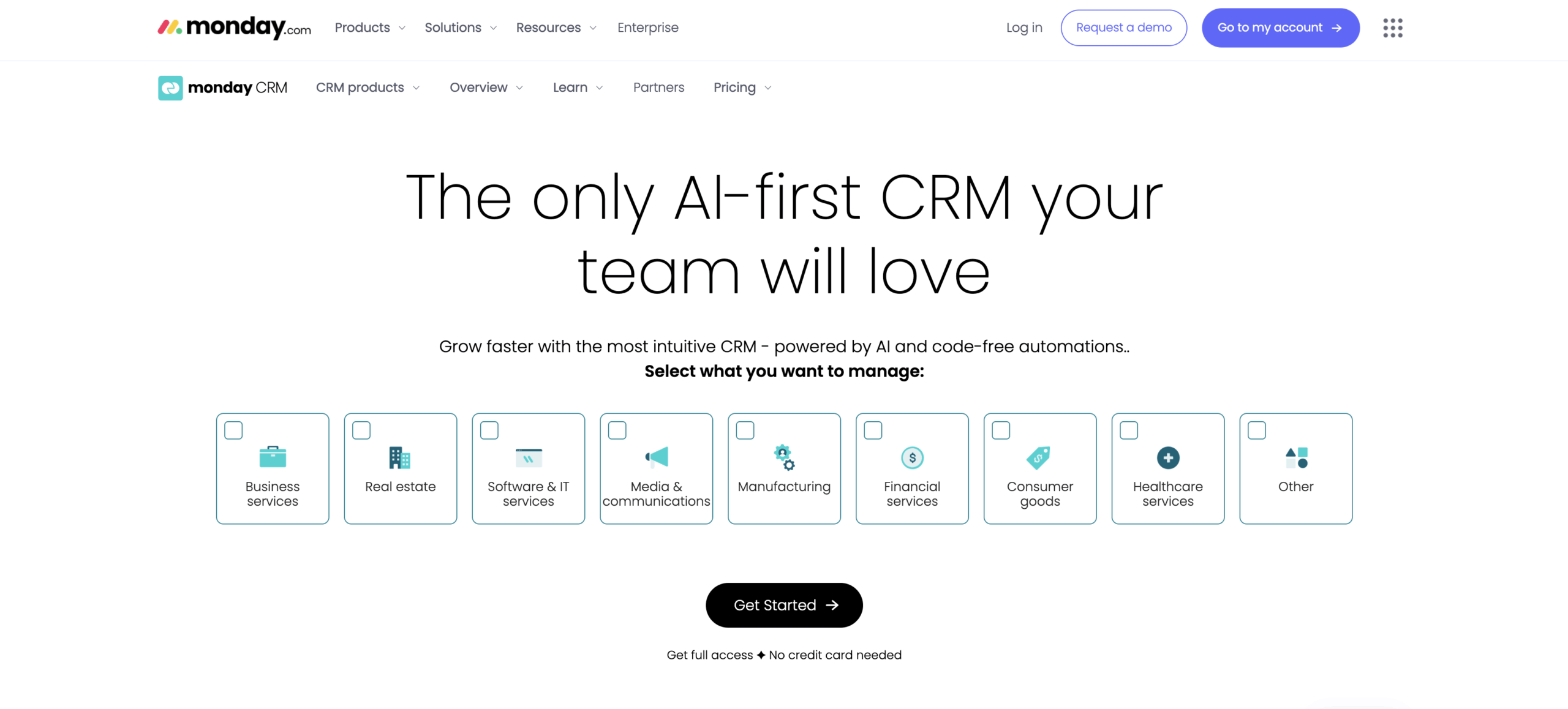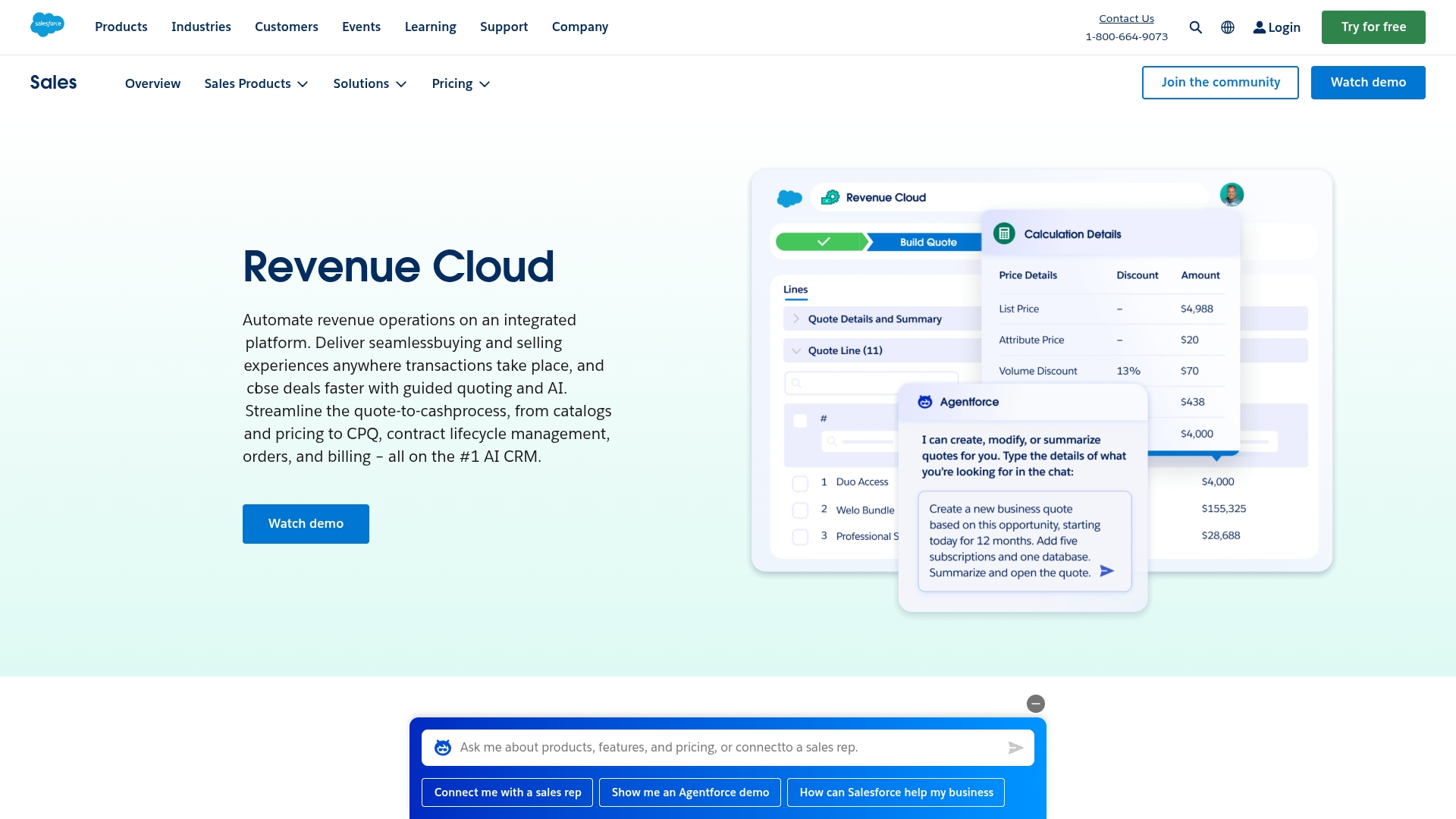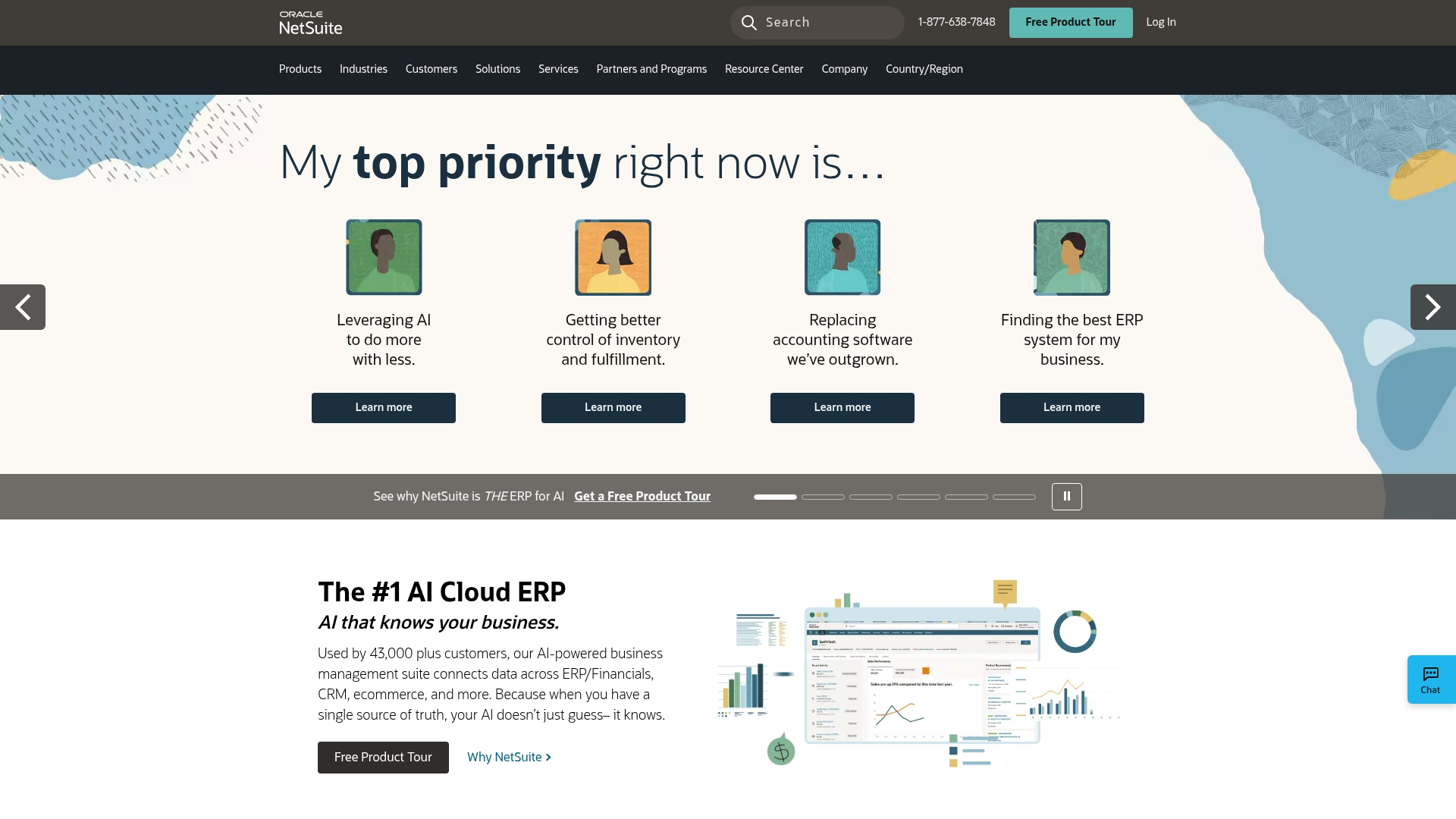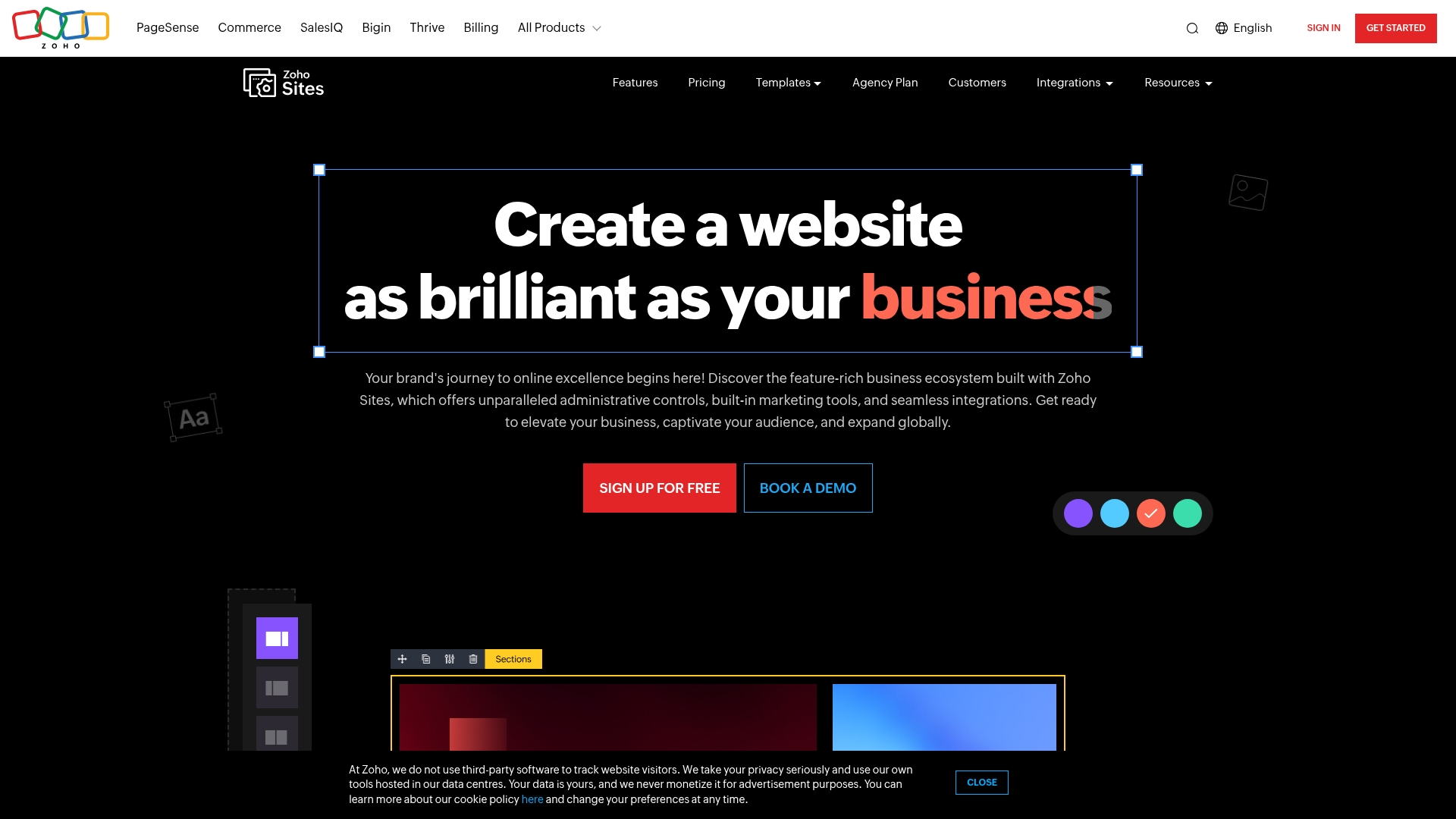As companies grow, the manual tools and spreadsheets that once supported their sales and finance operations can start to slow them down. Disconnected systems make it difficult to see the full picture of revenue performance, leading to missed opportunities and time spent on low-value tasks instead of strategy. Without a unified view, forecasting becomes guesswork and scaling becomes increasingly complex.
Revenue management software helps eliminate these challenges by centralizing data, automating routine processes, and offering real-time visibility into sales and revenue trends. With the right platform in place, teams can shift from reactive tracking to proactive growth planning, gaining the clarity and confidence needed to make informed decisions.
Below, we explore what to look for in a revenue management solution, highlight the leading options across industries, and show how modern tools can help organizations build more predictable, efficient, and scalable revenue operations.
Key takeaways
- Centralized visibility: revenue management software unifies data from multiple sources, eliminating silos and creating a single source of truth for accurate forecasting.
- Operational efficiency: automation reduces manual data entry and repetitive tasks, freeing teams to focus on high-value sales activities.
- Scalability and adaptability: modern platforms adjust to each organization’s growth stage, ensuring flexibility across industries from SaaS to hospitality.
- AI-driven insight: integrated intelligence enhances decision-making by highlighting trends, optimizing pricing, and predicting revenue outcomes.
- monday CRM advantage: the platform delivers a customizable, no-code workspace that centralizes customer data, automates workflows, and strengthens team alignment.
What is revenue management software?
Revenue management software acts as a strategic playbook, leveraging data analysis to guide teams toward maximizing profitability on every deal. It provides the intelligence to optimize pricing and accurately forecast demand, ensuring you maintain a competitive edge.
A robust system consolidates critical information, from sales data to market trends, transforming it into a clear, actionable game plan. Through the automation of complex analytical tasks, it eliminates guesswork and empowers your team to dedicate their energy to strategic client engagement and closing high-value opportunities.
Across industries, from hospitality to high-growth SaaS, optimizing revenue streams is a universal goal. By utilizing platforms like monday CRM, this goal can be achieved through centralizing customer data and automating key processes.
With one, unified workspace your entire team can operate with speed, alignment, and complete confidence.

Why businesses need a revenue management solution
Even high-performing sales teams can lose momentum when daily operations become bogged down by manual data entry, fragmented spreadsheets, and limited visibility. These inefficiencies slow progress and make it harder to forecast or scale effectively.
Common challenges include:
- Fragmented spreadsheets: disconnected data that limits clarity.
- Limited visibility: leaders lack a full view of pipeline health and performance.
- Inconsistent processes: teams spend more time reconciling details than selling.
The right solution brings all information into a single, connected workspace. Platforms like monday CRM automate repetitive tasks and centralize communication, giving teams more time to focus on strategic selling and data-driven decisions.
How to achieve for a high-performing sales engine
A high-performing sales engine relies on more than just efficient deal tracking — it depends on visibility, alignment, and actionable insights that guide every decision. The right platform connects these elements into one cohesive system, creating a foundation for consistent growth and smarter strategy.
Building this kind of system starts with clear visibility across your pipeline. Intelligent, automated forecasting replaces guesswork with data-driven accuracy, helping teams identify opportunities and plan future actions with confidence.
Key capabilities of a high-performing setup include:
- Workflow automation: streamline repetitive administrative tasks such as follow-ups, status updates, and reminders.
- Centralized collaboration: bring customer communication, deal tracking, and performance data into one shared workspace.
- Integrated visibility: connect existing tools to ensure seamless data flow from first contact to final agreement.
Work management platforms such as monday CRM support this approach by providing a flexible environment to unify data, automate key processes, and maintain full transparency across the revenue cycle. The result is a faster, more connected sales operation that enables teams to focus on selling — not on managing systems.
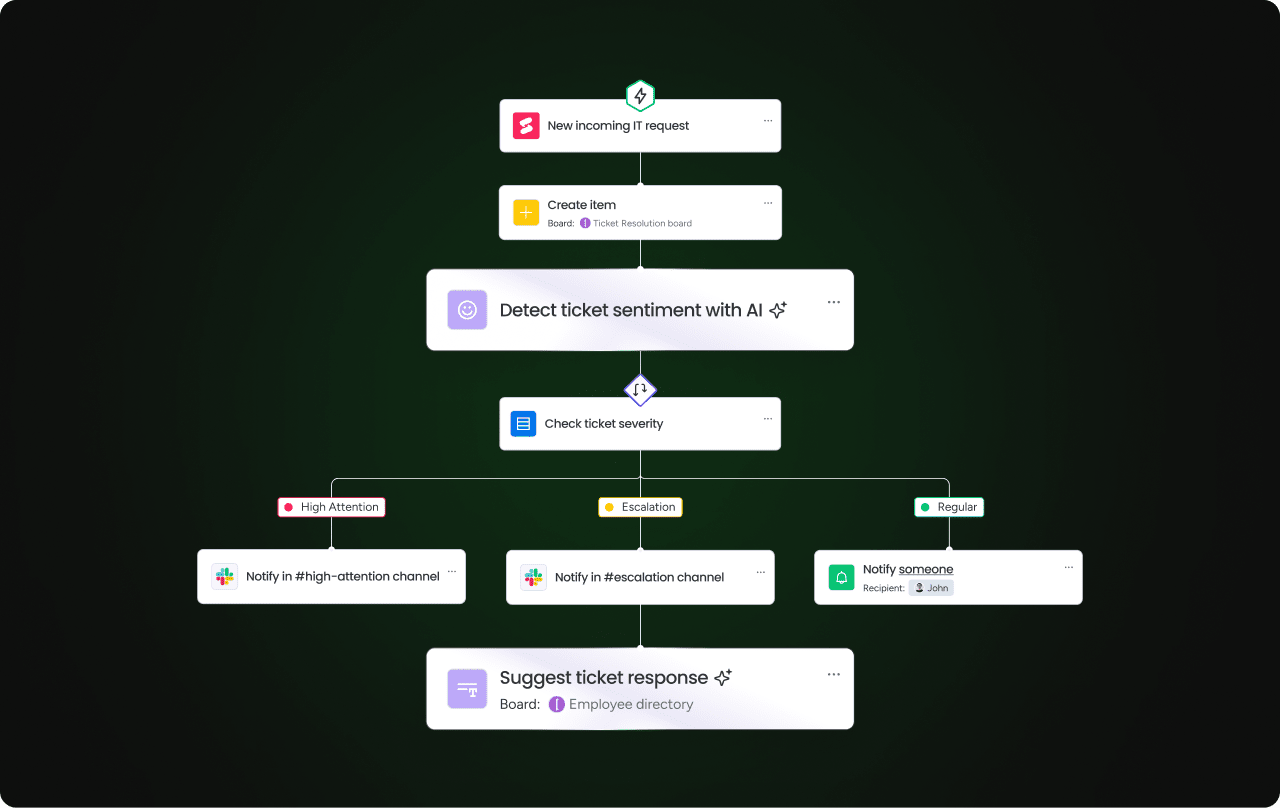
Best revenue management software platforms
The right revenue management software brings clarity to complex sales data, automates routine processes, and helps teams make confident, data-driven decisions. A strong platform should be intuitive to use, adaptable to different business needs, and scalable as revenue operations evolve.
Below, we outline five leading solutions that stand out for their usability, flexibility, and impact across industries in 2025.
| Platform name | Best for | Key strengths | Starting price range |
|---|---|---|---|
| monday CRM | Versatile revenue teams | No-code, customizable, AI insights, integrations | $10–$24/user/month |
| Salesforce Revenue Cloud | Large enterprises | Comprehensive features, scalability, ecosystem | Custom pricing |
| Comprehensive features, scalability, ecosystem | Financial integration | All-in-one ERP, robust reporting, automation | $99+/user/month |
| Zoho | Small businesses | Affordable, easy integration, user-friendly | $14–$52/user/month |
| Pipedrive | Sales-focused teams | Pipeline management, forecasting, simplicity | $14.90–$99/user/month |
1. monday CRM
monday CRM transforms revenue management from reactive guesswork into proactive strategy. The platform specializes in visual pipeline management and no-code customization, making it ideal for sales teams who want powerful CRM capabilities without the complexity.
Example: monday CRM provides an intuitive, customizable platform that helps revenue teams track deals, automate workflows, and gain real-time visibility into their sales pipeline without requiring technical expertise.
Key features:
- Visual pipeline management: track deals with drag-and-drop functionality across customizable sales stages.
- Automated forecasting: use deal insights to help predict revenue outcomes and prioritize opportunities.
- No-code automation builder: create workflows for follow-ups, lead assignments, and deal progression.
Pricing:
- Free: $0 for up to 2 seats.
- Basic: $9/month per seat (billed annually).
- Standard: $12/month per seat (billed annually).
- Pro: $19/month per seat (billed annually).
- Enterprise: custom pricing available.
- Discount: 18% available for annual billing.
- User minimum: paid plans require a 3-user minimum.
Why it stands out:
- Intuitive visual interface that sales teams actually want to use, reducing adoption friction and training time.
- Comprehensive Work OS integration allows revenue management to connect seamlessly with marketing, project management, and customer success workflows.
- An available Revenue360 add-on, through a partnership with Empyra, offers specialized recurring revenue tracking, churn analysis, and CARR/MRR reporting for subscription businesses.
Considerations:
- Advanced CRM features like AI-powered lead scoring and sophisticated analytics are only available in higher-tier Enterprise plans..
2. Salesforce Revenue Cloud
Salesforce Revenue Cloud delivers comprehensive revenue lifecycle management for enterprise organizations with complex sales processes. This platform specializes in unifying quote-to-cash operations within the world’s leading CRM ecosystem, making it ideal for large businesses seeking deep integration and scalability.
Use case: Revenue Cloud automates the entire revenue lifecycle from product configuration and quoting to contract management, order orchestration, and billing within a single, AI-powered platform.
Key features:
- Configure, Price, Quote (CPQ software) with AI-assisted quote generation and intelligent product bundling.
- Contract Lifecycle Management software with automated workflows, e-signature integration, and AI-powered clause generation.
- Unified billing and invoicing supporting multiple revenue models including subscription, usage-based, and one-time pricing.
Pricing:
- Custom pricing available through Salesforce sales team.
- Pricing varies based on organization size, features selected, and existing Salesforce licenses.
- Additional costs may apply for implementation, training, and ongoing support services.
Considerations:
- Complex implementation process that often requires specialized expertise and significant time investment.
- Steep learning curve, particularly for teams not already familiar with the Salesforce ecosystem.
3. NetSuite
NetSuite delivers comprehensive revenue management through its all-in-one ERP platform, automating complex recognition processes while ensuring compliance with ASC 606 and IFRS 15.
The cloud-native solution targets growing businesses that need unified financial operations, from start-ups to large enterprises across industries like SaaS, professional services, and manufacturing.
Use case: NetSuite’s Advanced Revenue Management module automates revenue recognition schedules and compliance reporting, eliminating manual spreadsheet processes while providing real-time visibility into deferred and recognized revenue.
Key features:
- Multi-element arrangement management that allocates revenue across complex contracts with multiple deliverables.
- Event-based revenue recognition triggered by milestones, project completion, or fulfillment activities.
- Automated forecasting with real-time updates on committed, deferred, and recognized revenue streams.
Pricing:
- Subscription-based annual license fee including core platform, optional modules, and user count.
- One-time implementation fee for initial setup and configuration.
- Advanced Revenue Management available as add-on module (specific pricing available through direct contact).
Considerations:
- Configuration complexity can lead to incorrect revenue categorization without expert implementation support.
- Advanced customizations and specialized reporting often require technical scripting knowledge or consultant assistance.
4. Zoho
Zoho delivers comprehensive revenue management through its integrated finance suite, combining billing automation with powerful analytics. The sophisticated platform offers seamless data flow between CRM, billing, and accounting systems, making it a great all-in-one solution for many small to medium-sized businesses.
Use case: Zoho excels at automating the entire subscription lifecycle while providing unified customer and financial data across your business ecosystem.
Key features:
- Automated recurring billing with flexible pricing models and proration calculations.
- Integrated dunning management to reduce involuntary churn through smart payment retry logic.
- Seamless integration with other Zoho apps (like CRM and Books) for a unified data view.
Pricing:
- Standard: $29/organization/month (or $25/month billed annually) for up to 3 users with basic billing features.
- Premium: $69/organization/month (or $59/month billed annually) for up to 10 users, adding subscription management and advanced analytics.
- Custom: contact sales for enterprise features, including advanced revenue recognition (IFRS 15 compliance) and dedicated account management.
- Note: standard and Premium plans are limited to 100,000 invoices per year and $1 million in annual revenue.
- Additional users: $9/month (or $7.50/month billed annually).
- Free trial: a 14-day free trial is available.
Considerations:
- The learning curve can be steep when setting up complex automations across multiple Zoho applications.
- The revenue recognition feature is only available on the Custom plan, is currently in “Early Access,” and may require contacting support to enable.
5. Pipedrive
Pipedrive transforms sales pipeline management into a visual, intuitive experience that drives revenue growth. The platform specializes in an activity-based selling methodology, making it ideal for small to medium-sized businesses that need straightforward CRM functionality without enterprise complexity.
Use case: Pipedrive helps centralize revenue tracking and forecasting within its sales-focused CRM. On its higher-tier plans, it eliminates data fragmentation by providing visibility into subscription, one-time, and installment-based revenue streams.
Key features:
- Flexible payment tracking for recurring subscriptions (MRR/ARR), one-time purchases, and scheduled installments (available on Growth plans and up).
- Revenue forecasting that analyzes past sales data and team activities to provide reliable predictions organized by expected closing dates (available on Growth plans and up).
- Customizable dashboards and reports that analyze revenue by product, team member, or custom fields with real-time updates as deals progress.
Pricing:
- Lite: $14/month per user (billed annually).
- Growth: $39/month per user (billed annually).
- Premium: $49/month per user (billed annually).
- Ultimate: $79/month per user (billed annually).
- Free trial: a 14-day free trial is available for all plans.
- Add-ons: features like Projects and Campaigns are available, with pricing per company per month.
Considerations:
- Key revenue features like forecasting and subscription management are only available on the Growth plan and higher, which may increase costs for teams needing these tools.
- The platform does not include a built-in churn tracking dashboard on any of its plans.

How to choose the right revenue management software
Selecting the ideal sales platform transcends a simple comparison of features; it’s about identifying a central hub that empowers your team. The goal is a system that operates seamlessly in the background, enabling representatives to focus on selling while providing leadership with the high-level visibility needed for strategic direction.
The result is a faster, smarter, and more connected sales force.
Ultimately, superior software also provides effortless visibility and control across the entire sales cycle. Seek a platform that automates routine tasks, thereby liberating your team to concentrate on high-value activities that directly impact revenue. With a comprehensive pipeline view and trustworthy data, you can coach effectively and guide your team toward consistent success.
Gain an extra edge with AI and automations
Gaining a competitive advantage is possible by equipping your team with an intelligent co-pilot for every deal. Artificial intelligence serves not to replace top performers but to amplify their capabilities by filtering out operational noise, allowing them to concentrate on strategic relationship-building.
An AI-enhanced CRM enables a team to operate with increased speed and greater confidence.
Platforms like monday CRM apply practical AI to automate tedious responsibilities, such as lead categorization and data extraction from communications. The impact extends beyond minor time savings; it restores significant blocks of time to your team’s schedule and delivers the crucial insights needed for timely, effective action.
This intelligence, when combined with powerful automation, allows for the construction of a self-sustaining sales process. Custom workflows can be designed to assign deals, dispatch perfectly timed follow-ups, and maintain team-wide alignment without manual intervention.
The result is unparalleled visibility and control, safeguarding against any opportunity being missed.
How monday CRM powers modern revenue management
Many CRMs limit flexibility by locking teams into rigid processes that do not reflect how they actually work. A high-performing revenue operation needs the opposite — a system that adapts to proven strategies, scales with growth, and provides clarity across every stage of the sales cycle.
Work management platforms like monday CRM bring this flexibility to life by centralizing the entire customer journey in one intuitive workspace. Every team member gains the visibility and structure needed to focus on what drives results.
Key advantages include:
- Customizable workflows: tailor processes to match your team’s sales rhythm and automate repetitive tasks.
- Unified pipeline view: track every deal from first contact to close within a single, connected workspace.
- Cross-team alignment: create transparency across departments so everyone operates from the same data.
- Data-driven confidence: use clear insights and forecasts to plan strategically and lead with precision.
With monday CRM, teams move beyond rigid systems to a model built for adaptability and speed — turning revenue management into a streamlined, insight-driven process that scales with success.
The content in this article is provided for informational purposes only and, to the best of monday.com’s knowledge, the information provided in this article is accurate and up-to-date at the time of publication. That said, monday.com encourages readers to verify all information directly.
Frequently asked questions
How long does it take to implement revenue management software?
Platforms built on a no-code framework, like monday CRM, can be implemented in days, allowing you to customize your workflows without technical support.
What happens if my revenue data is not centralized?
Modern revenue management software is designed to solve this by automatically syncing data from all your tools, creating a single source of truth for your team.
Where do businesses see return on investment first with revenue management software?
The first returns are typically seen in time saved from automating manual tasks and a significant improvement in the accuracy of your revenue forecasting.
Is there a free revenue management software option available?
While most dedicated platforms are paid, many comprehensive CRMs like monday CRM include robust revenue management features in their standard plans. Keep in mind that free versions from any provider often have data or feature limitations.
Can a CRM replace a dedicated revenue management platform?
Yes, a modern and flexible CRM can often replace a separate revenue management platform by handling everything from pipeline forecasting to automated reporting. This is especially true for businesses that don't have highly specialized pricing models.


